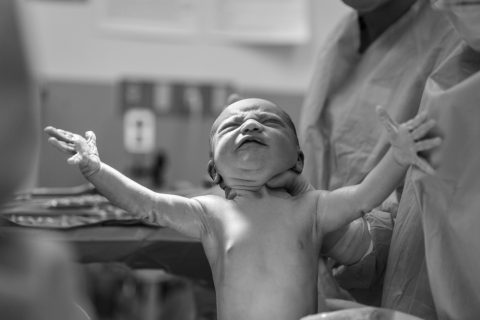I’m kind of amazed toward the end of the story when the pilot dumps the bicycle to tend to the fishing pole, yet his choice also makes perfect sense. It seems to be human nature to need to know what will happen, or in this case, what is at the other end of the fishing line—even when it isn’t in our best interest to linger to find out. Fishing works so well as a metaphor in this story. Did you know early on in the writing process that fishing would lure the pilot in this way? Or did that aspect of the story come together more gradually or haphazardly? What was the seed for the story?
I realized early on that fishing would be an important narrative element for the protagonist, but I didn’t realize the pilot would end up taking an interest. It’s quite possible that I was influenced by Barry Hannah’s “Even Greenland.” In that story, two fighter pilots are going down in flames, but they’re so consumed with trying to one-up one another with the perfect final words that they disavow the more immediate danger. They bicker over who has to eject and who gets to stay in the plane and die a hero’s death. To my ears, their argument is hysterically funny, but it also grasps at a compelling human truism. These are the fictional moments I live for as a reader. As for my entry point into “Fragore,” I had an image of a military aircraft crashing in a remote and improbable location. The rest of the story came slowly, brick by brick.
There’s quite a bit of psychic distance in “Fragore.” Do you often write with distance, or is this unusual for you? Were there any particular challenges to negotiating the distance in this story?
My tendency is to jump as deep into the protagonist’s psyche as I possibly can. This story, however, came to me in a more cinematic form. Partly, these POV choices come down to writerly intuition, but the other answer is that I’m always looking for ways to make myself uncomfortable as a writer. It seems to me that narrative distance is a mechanism that we should all futz around with from time to time. The whole self-challenging angle is a habit I picked up from many years working as a drummer for hire. Play a song the same way every night and you’ll quickly grow bored; your skills will plateau. It’s important to experiment, even if many experiments end in disaster.
Is “Fragore” part of a larger project? If so, want to tell us about it?
This one’s a self-contained work. Like virtually all fiction writers, I’m trying to push my novel out the door. However, I’m also hoping that “Fragore” might fit into my overall “family” of flash fiction. I’m a big advocate of the flash form, and I suspect that the spatial constraints are good for me. I also wish that more big publishers were open to the idea of publishing flash collections and/or chapbooks. Writers like Stuart Dybek have made some great headway in this regard. Maybe more publishers will come around.
What books are on your nightstand right now (or wherever it is you pile up books that you’re currently reading)?
My bookshelf stays packed clown-car tight. I’m currently reading an ARC of Catapult, a fantastic new collection by Emily Fridlund. Also in my current rotation: Kelly Luce’s Three Scenarios, Richard Brautigan’s Revenge of the Lawn, an Amy Hempel collection, and Junot Díaz’s Oscar Wao. Nearly all are borrowed from my peers. I keep a few of Mark Richard’s collections within arm’s reach most of the time. I love novels, but at the moment, collections are my favorite, especially those that skew a few degrees west of hard realism.
I love the list of Uncle Gio’s fishing superstitions. Are you superstitious about anything? If so, what?
As a child, I believed in anything and everything, from leprechauns to Santa Claus. I grew up in Gulf Breeze, Florida—a tiny coastal town you’ve never heard of. We reached brief and dubious notoriety in the late eighties for a rash of UFO photographs that made national circulation. My official position as an adult is that I’m not superstitious—I don’t believe in UFO abductions, prowling Bigfoots (Bigfeet?), or moon-landing conspiracies. I am, however, interested in characters who believe in stuff and carry strong convictions. A high-wattage philosopher-type like Slavoj Žižek might even suggest that fictional characters provide writers with a vehicle through which they permit themselves to believe in things, if only vicariously. Then again, when I pump gas, I always have to make sure the digits land on a nice, round number. My God. I’m hopelessly superstitious!



 The core workshop of SmokeLong Fitness is all in writing, so you can take part from anywhere at anytime. We are excited about creating a supportive, consistent and structured environment for flash writers to work on their craft in a community. We are thrilled and proud to say that our workshop participants have won, placed, or been listed in every major flash competition. Community works.
The core workshop of SmokeLong Fitness is all in writing, so you can take part from anywhere at anytime. We are excited about creating a supportive, consistent and structured environment for flash writers to work on their craft in a community. We are thrilled and proud to say that our workshop participants have won, placed, or been listed in every major flash competition. Community works.